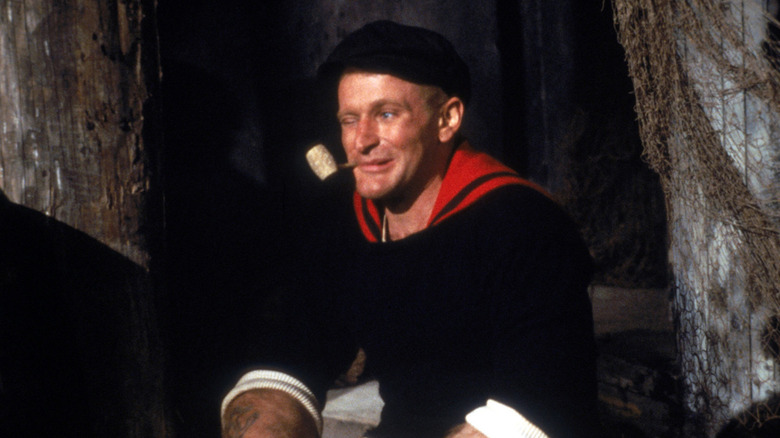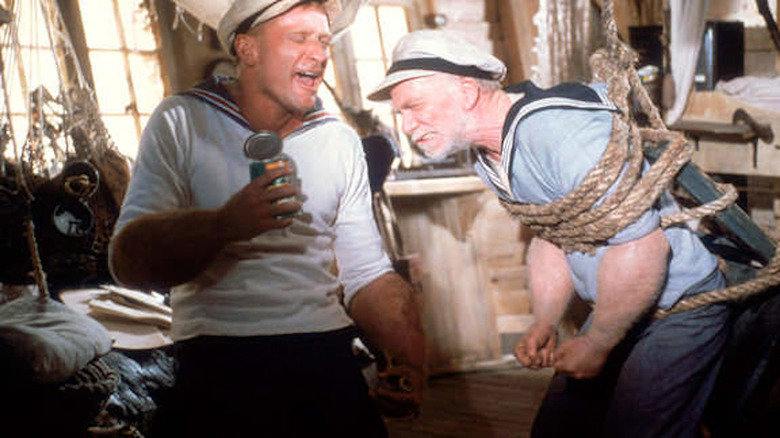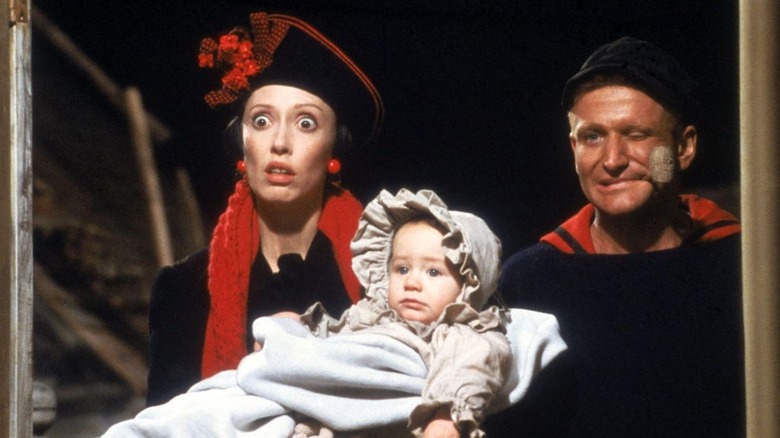Robin Williams Had Some Regrets About His Popeye Performance
42 years ago, Robin Williams was not at the top of anyone's list to bring E.C. Segar's one-eyed comic strip sailor to life. Though "Mork and Mindy" had turned the stand-up comic into a major television star, he had yet to prove himself as a big-screen draw. Producer Robert Evans initially wanted Dustin Hoffman to top-line his live-action adaptation, but when the temperamental actor dropped out after clashing with screenwriter Jules Feiffer, he took a risk on the up-and-coming funnyman.
Williams' whirling-dervish energy wasn't entirely compatible with director Robert Altman's penchant for long, laid-back takes sprinkled with overlapping dialogue. Whereas characters tend to drift in and out of scenes in an Altman movie, Williams draws focus with his constant ad-libbing. If he couldn't disappear into the sea of eccentrics that populate the fictional village of Sweethaven, Altman's immersive aesthetic would be completely ruined.
Then again, if no one could understand a word stumbling out of Williams' mouth, this problem would be completely moot.
A killer whale farting in a wind tunnel
Though Evans wanted Segar's comic strip to be the film's stylistic template, audiences would be expecting Popeye to sound exactly like Jack Mercer's Popeye from the popular, long-syndicated Fleischer Studios cartoons — i.e. a little bit mumbly (as expected for a man who speaks with a corn cob pipe stuck in his mouth), but always decipherable. Williams failed miserably on his first pass.
In an interview with Rolling Stone, the actor confessed, "I had to dub that movie over twice... because people couldn't understand what I was saying. I sounded like a killer whale farting in a wind tunnel." He nailed it the second time through, to the point where you wonder how much of the character's tossed-off witticisms were improvised. While the Popeye of the comics and cartoons favored bad puns and groaner jokes, there's a wryness to Williams' dialogue that's new to the character. He's a little too sharp at times.
Surviving Sweethaven
Altman's "Popeye" was a modest box-office hit when it hit theaters in December 1980. Though Gene Siskel and Roger Ebert came through with a pair of upturned thumbs, the majority of critics were mixed-to-negative. Williams fared well with most reviewers, but his performance was completely overwhelmed by Shelley Duvall's uncanny embodiment of the lovably lanky Olive Oyl. While "Popeye" didn't help or hurt Williams' nascent movie career, he wouldn't become a bankable superstar until 1987's "Good Morning, Vietnam," where his stream-of-consciousness riffing was actually integral to the plot. If audiences missed any dialogue in that movie, it's because they were laughing too hard.


